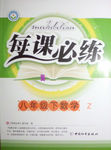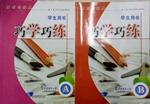题目内容
Johnson is a New Yorker; ________ is, he lives in New York.
- A.this
- B.that
- C.he
- D.it
that is常用作插入语,意为“也就是说”,相当于that is to say.

 每课必练系列答案
每课必练系列答案 巧学巧练系列答案
巧学巧练系列答案
Teenagers will be told to "stand up for their elders" on public transport — or risk losing their right to free travel.
London Mayor Boris Johnson will declare plans today to make youngsters sign a “courtesy pledge" (文明宣言) to promise to behave in a respectful manner when travelling in the capital. The three-point pledge states that they will give up their seats to the elderly, pregnant and disabled; keep from using offensive or threatening language; and be courteous and polite to fellow passengers and staff.
Those who refuse, or are caught behaving in a loutish manner, will have their free travel passes removed. The plan — a key part of Mr. Johnson's re-election bid— will initially affect the 400,000 ll-to-15-year-olds in London who qualify for free travel cards, but Tory sources believe the idea could be used across the country.
A Conservative insider said: "The plan corresponds perfectly with the push to create a Big Society. It is about changing culture and expectations around behavior to improve the atmosphere on buses and trains for everyone."
Speaking before today's launch, Mr. Johnson said he was determined to deal with the anti-social behavior of a "minority of youngsters" on public transport. "When I was a boy, I was taught to stand up for those less able to, "he said. "Youngsters enjoy the privilege of free travel, which is paid for by Londoners, but they have to understand that with that privilege comes responsibility. Anyone who abuses this privilege will have it taken away, and will have to earn that right bach ."
Teenagers found guilty of a serious violation of the new behavior rules will lose their travel passes, and will have to carry out unpaid community work to earn them back.
Mr. Johnson is also introducing a "two strikes and you're out" policy to deal with repeat offenders, under which those committing a second serious violation of the rules will lose their travel rights permanently.
【小题1】Which of the following is NOT the content of the "courtesy pledge"?
| A.Teenagers should give up their seats to the old. |
| B.Teenagers shouldn't talk with strangers in public. |
| C.Teenagers mustn't use aggressive language in public. |
| D.Teenagers must be polite to people on public transport. |
| A.rude | B.stupid | C.polite | D.calm |
| A.youngsters should know duty comes with benefit |
| B.youngsters shouldn't use the privilege of free travel |
| C.anyone shouldn't make money with the privilege |
| D.youngsters should do some unpaid community work |
| A.to sign an agreement | B.to work in the community |
| C.to be fined | D.to lose their travel passes forever |
| A.London Mayor Boris Johnson is a great person |
| B.The plan corresponds perfectly with the Big Society |
| C.Be polite and stand up for your elders or lose free travel |
| D.The "courtesy pledge” has been used across the country |
John H. Johnson was born in a black family in Arkansas City in 1918. His father died in an accident when John was six. He was reaching the high school age, but his hometown offered no high school for blacks.
Luckily he had a strong-willed caring mother. John remembered that his mother told him many times, “Son,you can be anything you want really to be if you just believe.” She told him not to depend on others,including his mother. “You have to earn success,” she said. “All the people who work hard don’t succeed, but the only people who do succeed are those who work hard.”
These words came from a woman with less than a third grade education. She also knew that believing and hard work don’t mean everything. So she worked hard as a cook for two years to save enough to take her son, who was then 15,to Chicago.
Chicago in 1933 was not the promised land that black southerners were looking for. John’s mother and stepfather could not find work. But here John could go to school, and here he learned the power of words — as an editor of the newspaper and yearbook at Du Sable High School. His wish was to publish a magazine for blacks.
While others discouraged (使气馁) him, John’s mother offered him more words to live by: “Nothing beats a failure but a try.” She also let him pawn(典当)her furniture to get the $500 he needed to start the Negro magazine.
It is natural that difficulties and failures followed John closely until he became very successful. He always keeps his mother’s words in mind: “Son, failure is not in your vocabulary!”
Now John H. Johnson is one of the 400 richest people in America — worth $150 million.
【小题1】 John’s father died in ________.
| A.1922 | B.1933 | C.1924 | D.1923 |
| A.his father died when John was very young |
| B.life was too hard for them to stay on in their hometown |
| C.there were no schools for black people in their hometown |
| D.John needed more education badly |
| A.didn’t believe in or depend on others |
| B.thought no one could succeed without working hard |
| C.believed one would succeed without working hard |
| D.thought one could be whatever one wanted to be |
| A.about the spiritual support John’s mother gave him |
| B.how John H. Johnson became successful |
| C.about the importance of a good education |
| D.about the key to success for blacks |
